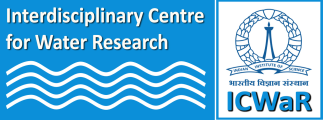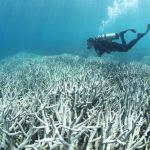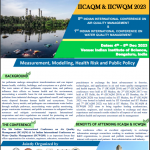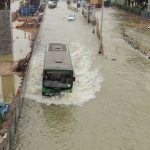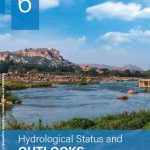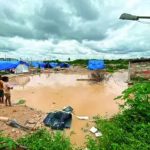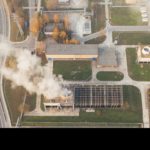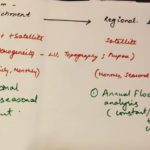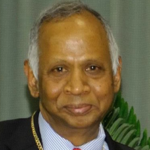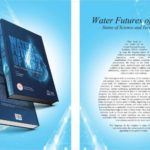Student Seminar Series
|
09 May
2019
|
Physical and Geochemical Characteristics of the Brahmaputra River Basin
Abstract: The Brahmaputra River suffers a dramatic change in elevation before it enters India along the eastern syntaxis where it exhumes large amounts of sediments which it eventually deposits along the plains of Assam and Bangladesh. This river system is one of the largest in the world with a high specific discharge and experiences several long-duration floods during monsoon, causing enormous damage to infrastructure, agriculture and livelihood of the inhabitants of low-lying areas in the flood plains. Physical studies carried out on the Brahmaputra river basin have utilised a single hydrological model to simulate the daily discharge. Relying on a single model often leads to predictions that capture some phenomena at the expense of others. Multi-model ensemble hydrological simulation has been an effective method for improving simulation accuracy. Geochemical characteristics related to the major ion chemistry and radioisotope systematics in this river have been previously studied, but none of these studies has focussed on using geochemistry to study flood events that occur annually in the Brahmaputra. The aim is to simultaneously dwell on the physical and geochemical characteristics of the river basin. This enables one to address and investigate questions based on geochemical attributes that may otherwise not be answered using a purely physical modeling approach. |
||||||||
|
06 Mar
2019
|
Modelling of Membrane Bioreactors: Hydrodynamic and Biokinetic models
Abstract: The world is currently in a highly water stressed situation, with 844 million people around the globe with no access to clean water. By 2050, it is estimated that 5.7 billion people in the world will have to live in areas plagued by water scarcity (UN, 2013). The availability of safe drinking water in sufficient quantity is directly linked with how wastewater is managed. In India, about 38671 MLD of untreated sewage is discharged into waterbodies rendering these water sources unfit for use. To prevent contamination of natural water bodies and to achieve water sustainability, there is a need to value wastewater for its potential rather than discard it. Membrane bioreactor (MBR) has emerged as one of the leading technologies for treatment of both municipal and industrial wastewater due to efficiency in producing high quality effluents. There have been several modelling studies focusing on the biological processes and the hydrodynamics aspects of membrane bioreactor. Biokinetic models including the Activated sludge models, Hybrid models and integrated models is used to understand and capture the complexities of the biological processes in MBR. The Hydrodynamic models including Computational Fluid dynamics models (CFD) focus on MBR system design and optimization. A multiphase CFD model is developed to investigate the efficiency of the aeration system in the Membrane Bioreactor. The turbulence in the Bioreactor is modeled using k-є model and the diffusion of oxygen in water from aeration system is modeled using species transport model. The developed CFD model is also validated using existing literature experimental results. |
||||||||
|
30 Jan
2019
|
Monsoon low pressure systems and stochastic risk analysis
Abstract: Every year India suffers from floods triggered by Monsoon Low pressure Systems (LPS), which cause disastrous effects at many locations in the country. In the past, a few studies developed procedures for identifying genesis points of LPS and algorithms for tracking their propagation. They were used on various reanalysis products to determine tracks of LPS originating in the Indian subcontinent. But none of those procedures are proven to be effective in predicting the interannual variability of LPS frequency observed by India Meteorological Department (IMD). Questions also arise on the subjectivity involved in the manual procedure (based on pressure charts) considered by IMD for detection of LPS tracks. Inconsistency also exists in future projections of these systems by various studies. Results obtained from investigations performed on different approaches to examine these issues would be presented. |
||||||||
|
28 Nov
2018
|
Spatio-temporal variations of runoff and baseflow components using isotopic methods
Abstract: The quantification of runoff and base flow components of hydrograph in terms of water fluxes and chemical composition is an important issue in catchment hydrology. Particularly in a riverine system contribution of hydrograph components depends on the initial state of the various hydrological reservoirs and on the characteristics of the hydrological input (precipitation). Baseflow reacts slowly to precipitation and is usually associated with water discharged from groundwater storage. By separating the baseflow (pre-event water) from the stream discharge the contribution of surface and groundwater can be quantified using stable isotope tracers.
The stable isotopes of water namely 18O and 2H, which are part of the water molecule, are typically considered in the hydrological investigations owing to their spatio-temporal variations resulting from isotope fractionations along different phase changes of water cycle and diffusion. Various atmospheric processes such as advection, condensation and evaporation directly impact the composition of stable water isotope, which consequently influence the groundwater isotopic composition. As a part of the Isotope Hydrograph Separations (IHS), study has been done for Kabini catchment by applying end member mixing analysis (EMMA) to quantify the pre-event water and event water.
|
||||||||
|
31 Oct
2018
|
Impact of Climate change on Water quality for Ganga river
Abstract: Climate change will have significant effects on fresh water quality due to increase in river temperature and changes in magnitude of stream flow. Other major factors affecting water quality are the point and non-point sources of pollution which include industrial & municipal sewage discharge and agricultural runoff. Due to climate change, there can be deterioration of water quality even if the effluent discharged is within permissible limits. Objective of the study is to quantify the response of water quality due to climate change, and to identify hotspots of pollution in the Ganga River. Water quality analysis is carried out using a water quality model QUAL2K. The impact of climate change is assessed using 2 methods: hypothetical scenarios of temperature & stream flow and temperature outputs of GCMs for various RCP scenarios as input to water quality model. |
